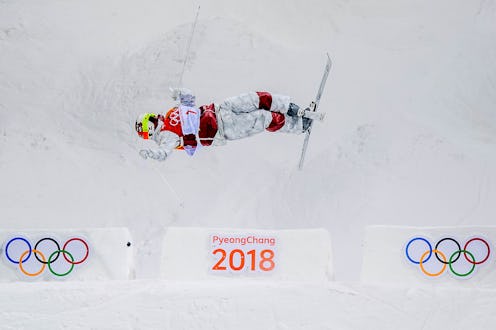News
Think Olympic Judges Are Rolling In Cash? Think Again

With the first events of the 2018 Winter Olympics in PyeongChang beginning, the world is preparing for a few weeks of drama. With the inclusion of so many events that are judged — including figure skating, ski jumping, and snowboarding — controversy is unavoidable. You might think judges would be well-compensated for a job that involves such high stakes. But how much Olympic judges make is really not much at all.
In fact, most Olympic judges are unpaid volunteers, according to The Washington Post. Some have a per diem fund, which usually totals less than $100 per day. Besides this, they generally have their expenses covered for room, travel, and official meals at competitions and test sessions. But the judges are not typically given additional compensation.
Most judges actually work separate day jobs and have to take time off to attend the Olympics. This means that some even lose money for their participation in the games.
It could be because of this that judges have been known to accept monetary incentives to sway their decisions. A confidential report written by the International Olympic Committee in 1999 conceded that "bribery within the Olympic movement goes back decades," according to The Independent.
Athletes and coaches are sometimes spotted delivering money to judges during the games. This isn't bribery. The transaction occurs when an athlete decides to appeal the judges' decision. Although there is no single appeals process — each competition is run by its own International Sports Federation, which makes its own rules — some sports require athletes to submit a fee for an appeal. If the appeal is successful, that money is usually returned. The fee is meant to discourage athletes from submitting superfluous appeals.
Since they get paid so little, it's reasonable to ask why would anyone want to become an Olympic judge. But the power, prestige, and opportunity to travel are a huge draw for many. "A job judging at the Olympics and other elite competitions is a coveted perch," wrote The New York Times in 2013.
Judging "is a wonderful way to impart skating knowledge and help young skaters achieve their skating goals," reads a description from U.S. Figure Skating. "It's also an incredible learning experience and a great way to meet new people." The site advertises judging as "a rewarding activity" that involves "many memorable experiences."
Evidently the judges agree — especially those who keep coming back. "We’re here because we love this," Charlie Cyr told The Washington Post before the last Winter Olympics, "Same as the athletes." Cyr has been a figure skating judge for many Olympics games, including the one where Nancy Kerrigan was infamously injured.
But judging is not for everybody. In addition to the poor pay, judges often have to face the fury of athletes, coaches, and international audiences. They are generally (and not necessarily incorrectly) assumed to be biased in favor of the athletes from their own country. Unlike events such as swimming, in which winners can be clearly measured by speed and distance, judged events are subjective. It's easy to condemn the judges if you don't agree with them.
That's the feeling of Jossi Wells, a New Zealand freestyle Olympics skier who spoke to The Washington Post on the topic. "I wouldn’t want to be a judge, man," he said.